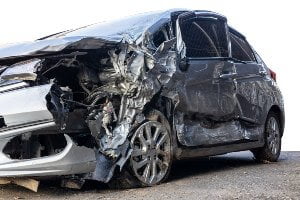 Car crashes can be dangerous and could leave those involved with severe injuries. In some cases, those injuries could be fatal.
Car crashes can be dangerous and could leave those involved with severe injuries. In some cases, those injuries could be fatal.
While the victim is often the one who suffers fatal injuries, there are times when the liable driver is the one who passes away. This may raise questions about pursuing compensation for damages from the at-fault driver.
In this blog, we discuss what you need to know about auto accident claims involving a deceased at-fault driver.
If you are uncertain about what steps to take after a collision in the Lafayette area, call our Lafayette-based car crash lawyers to schedule a free legal consultation. We help crash victims pursue the maximum compensation without any upfront costs.
Call 337-984-8020 to schedule a FREE case review. Turning Wrong Into Right.
Do I Still Have the Right to Seek Compensation?
Louisiana is an at-fault state, meaning the at-fault driver may be responsible for damages related to the crash. If the at-fault driver passes away, his or her insurance company can still be held liable for your injuries and damages. While tragic, the death of the at-fault driver may not have much of an effect on the legal process for victims of the collision.
However, the legal process can be complex, and you cannot count on the insurance company to offer full compensation for your medical care and other expenses. You should give serious thought to hiring an attorney with a record of success in car accident claims.
At Galloway Jefcoat, we negotiate with insurers for full compensation. If insurers do not offer the compensation our clients need, we are fully prepared to take matters to court. We are deeply committed to securing the favorable result you need during this difficult time.
Should I Worry About the At-Fault Driver’s Family?
Fatal car crashes are devastating for the family members who are left behind. As families grieve, car crash victims may feel bad about pursuing a claim against the at-fault driver. Some victims may think that they are taking money from a grieving family while seeking compensation.
The truth of the matter is when you file a claim, you are going to be dealing with the at-fault driver’s insurance company, not this person’s surviving family members. In fact, it is highly unlikely they will be involved in your claim at all.
You may think this would change if you had to file a lawsuit. However, you would still be dealing with the insurance company.
What if the At-Fault Driver Was Uninsured or Underinsured?
If the at-fault driver was uninsured, you can seek compensation from the uninsured motorist coverage in your own policy. If the at-fault driver was underinsured, meaning he or she does not have enough coverage for the full value of your damages, you can seek compensation from your underinsured motorist coverage.
You may wonder about filing a claim against the estate (property and assets) of the deceased driver. While this may technically be an option, it is highly unlikely. Most people do not have the assets to pay for a crash victim’s medical care and other damages.
Challenges Victims Face When the At-Fault Driver Dies
Some car crash victims may think it will be easy to recover full compensation from the insurance policy of a deceased at-fault driver. After all, the deceased driver will not be able to dispute your account of the collision.
However, proving that the at-fault driver was liable could be more challenging. The insurance company may think you are not being honest about what happened, especially if they are unable to hear the other party’s side of the story.
The liable insurance company may blame you for the crash simply because the at-fault driver passed away. Their argument would be that it must be your fault because otherwise their policyholder would still be alive. They employ tactics like these to try to avoid paying out compensation.
Proving Liability When the At-Fault Driver is Deceased
You and your attorney must provide evidence of why the at-fault driver should be held liable for the crash. For example, pictures from the scene can help prove why the collision occurred. Your medical records can be used to connect your injuries to the collision.
Other evidence that could be used to strengthen your case includes:
- Traffic camera footage
- Expert testimony
- Eyewitness statements
- Analysis of the damage to both vehicles
While you can help your case by gathering evidence at the scene, this is not the top priority after a collision. You need to see a doctor to stabilize your injuries.
Galloway Jefcoat’s experienced lawyers can review your situation and explain how you can strengthen your case.
Call Galloway Jefcoat to Discuss Your Legal Options
If you were injured in a car crash, the experienced attorneys at Galloway Jefcoat may be able to help you with the legal process.
We do not charge any upfront costs or fees for our legal services. Our clients do not pay unless they receive compensation.
Schedule a FREE case review: 337-984-8020. Turning Wrong Into Right.